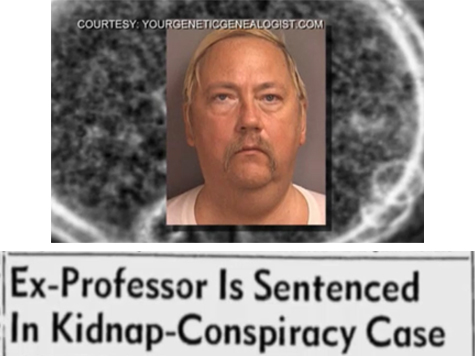UTAH -A couple who underwent artificial insemination at a Utah clinic, recently learned that the husband is not the father of their now 21-year-old daughter. The couple thought it would be fun to do some DNA testing using the services of 23andMe which advertises the following: Discover your ancestral origins and lineage with a personalized analysis of your DNA. The cost of the service is $99. But when the couple got the results back, they were shocked to find that their daughter had no DNA from her father.
The mother said, “I felt my stomach drop. When I called my daughter and husband’s DNA up next to one another they didn’t share any DNA at all, and I just thought to myself, ‘oh my god.'” She then disclosed to her husband that he and their daughter were not actually related. “I was shaking,” she said prior to delivering the news.
Back in the early 90’s, the couple was having trouble conceiving and sought out help at Reproductive Medical Technologies, a clinic associated with the University of Utah. In 1992, their daughter was born.
The information learned from the DNA test led the couple to the conclusion that the husband’s sperm must have been switched out at the clinic. The wife, using the genealogy acquired form 23andMe, began searching for her daughter’s real biological father. The search eventually led to a man named Thomas R. Lippert who had worked at the very clinic where she had been inseminated. “I remember that he was at the front desk a lot of the time,” the wife said. The couple spent a good amount of time at the clinic during a period in which they were trying to get pregnant.
The wife said Lippert was a part-time employee of the university from 1988 to 1994. She remembered Lippert having a stack of baby pictures behind his desk: “he seemed friendly and was very proud of all those pictures, almost seemed like a brag board up there, those were the children he had helped people have.”
Lippert’s mother provided a DNA sample for her son and it was confirmed that he was in fact, the girl’s father. This information along with the recollection of the baby brag board, led the couple to believe that it was not an accidental switch up. “I just thought, ‘oh my gosh,’ this was not an accident. This was intentional,” said the wife. And then she considered a terrible possibility: “Oh my God how many of those are his biological children?”
But the story only gets stranger. A deeper dive into Lippert’s background revealed prior to working at the clinic, he served two years in prison for a high profile kidnapping of a college co-ed named Susan Wells Cochran. Lippert held her hostage for three weeks while conduction “love experiments.” These experiments included locking her in a black box and using electroshock therapy on her to make her “fall in love with him.”
The University of Utah issued the following statement in response:
“Since April 2013, the University of Utah has been investigating credible information regarding the possible mislabeling or tampering of a semen sample at RMTI (Reproductive Medical Technologies, Inc.), a private andrology lab owned by a University faculty member (now deceased). The facility was a private laboratory located in Midvale, Utah. While not owned or operated by the University, the University contracted with RMTI for specimen preparation and semen analysis. Additionally, RMTI prepared semen samples for private physician offices throughout the community, not University physicians.
Through genetic testing, a woman who received artificial insemination (AI) in 1991 discovered the biological father of her child was not her husband, as she had assumed. She traced the genetics of her child to a man who was a former employee of the now-defunct RMTI, which may have prepared the AI sample. The man in question was also a part-time employee of the University from 1988-94.
There are no remaining records from RMTI to prove the claim and the man in question has been deceased since 1997. Consequently, it is unknown how this incident might have happened. In addition, there is no evidence to indicate this situation extends beyond the case in question.
We understand this information has been upsetting for the family and other clients of RMTI. We want to help alleviate this distress by providing professional genetic testing for RMTI clients who were treated between 1988 through 1994.
Concerned individuals should contact the University of Utah Andrology Lab at 801-587-5852.”

COMMENTS
Please let us know if you're having issues with commenting.